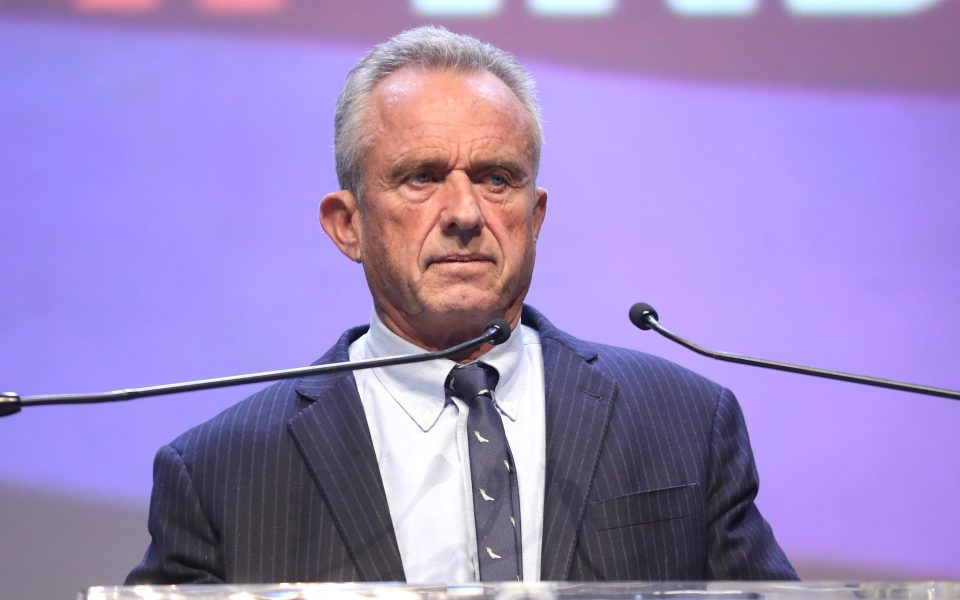Photo credit: Robert F. Kennedy Jr. by Gage Skidmore, via Flickr. CCA BY-SA 2.0

About a year ago, Robert F. Kennedy Jr, the leathery scion of one of this nation’s greatest political legacies, filed to run for president. It made sense: His uncle, John F. Kennedy, was one of the most popular presidents of the last century, serving until he was assassinated in 1963. And his father, Robert F. Kennedy Sr., was one of the most popular US attorney generals of the last century and a strong contender for president himself, until he was assassinated in 1968. His other uncle, Ted Kennedy, who also ran several times for president, was one of the most powerful members of the US Senate until he died in 2009 — a brain tumor, not a bullet.
The Kennedys are as close to royalty we have in this country, and so RFK was just doing what came naturally when he filed to run for president, though he went about it rather differently than his father and uncles did.
For one, RFK Jr. has never held elected office. And he chose to run for president not as a Democrat, which was a point of pride for his familiar predecessors, but as the faceman for a new political party which, Carolina Forward points out, is a fair sight quicker and easier than working your way up through the ranks of political office or the New York real estate market. And he — or more accurately, his backers — threw some money at it, getting enough signatures to land himself on the presidential ballot in about half of US states… until he dropped out of the race entirely on Aug. 23, threw himself behind the Donasld Trump campaign and began suing swing states to get himself off the ballot.
It matters because North Carolina is one of those swing states where RFK Jr. was successful in his play, first to get on the ballot and then to get off. He lost his initial lawsuit against the NC Board of Elections seeking to be removed from the race, lost an appeal and was then granted his wish by the NC Supreme Court on the shakiest of grounds. This action caused an illegal delay in NC absentee voting deadlines as new ballots had to be printed. That also cost money.
Forsyth County Elections Director Tim Tsuji estimates that the reprint cost the county about $20,000 — $16,000 for the reprint and another $4,000 or so in overtime pay for the workers who had to make it happen. They had to work on Labor Day to get it done, Tsuji added. And Forsyth used a print-on-demand model for absentee ballots, making them in-house as they’re requested, which saved thousands.
It may not sound like a lot, but remember there are 100 counties in NC, not all of which print on demand. WRAL estimates RFK Jr.’s ploy will cost an extra $1 million to NC taxpayers.
“That’s extra dollars, right?” Tsuji says. “I’ll certainly put in a request to the county commissioners to offset that cost.”
RFK Jr. remains on the ballot in 33 states, including swing states Michigan and Wisconsin. But here in NC, where Trump won in 2016 by fewer than 175,000 votes and in 2020 by fewer than 75,000, it could be enough to turn the tide. And we get the sense that RFK Jr. cares about as much about this as he did about running for president in the first place, a quest he abandoned after about a year.
Join the First Amendment Society, a membership that goes directly to funding TCB‘s newsroom.
We believe that reporting can save the world.
The TCB First Amendment Society recognizes the vital role of a free, unfettered press with a bundling of local experiences designed to build community, and unique engagements with our newsroom that will help you understand, and shape, local journalism’s critical role in uplifting the people in our cities.
All revenue goes directly into the newsroom as reporters’ salaries and freelance commissions.


Leave a Reply